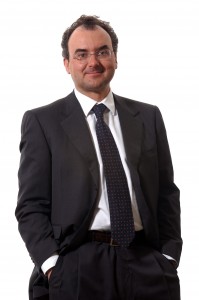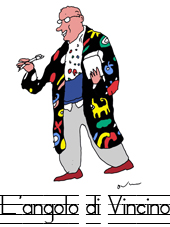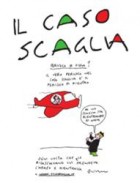The Defence
 Silvio Scaglia and his attorneys at law Antonio Fiorella and Piermaria Corso reject the form and merits of all the charges.
Silvio Scaglia and his attorneys at law Antonio Fiorella and Piermaria Corso reject the form and merits of all the charges.
1) Mr. Scaglia was not aware of the unlawful nature of the sale and purchase transactions, so called Phuncard transactions and telephone traffic (which would represent “carousel” tax fraud ). Fastweb checked the transactions internally and with the aid of external consultants to ensure they were correct and at the time no tax fraud was found.
2) The payment with added VAT was regularly paid by Fastweb.
3) There are no preconditions for pre-trial incarceration.
4) Scaglia himself and Fastweb were affected by the fraud.
The defense arguments had already been explained to the court during the interrogations of March 2007, during the first phase of the investigation, which ended in 2009 with a request for dismissal because of lack of evidence. The facts remain unchanged and no additional counts have been added.
Lack of awareness of the offence.
The prosecutors argue that Silvio Scaglia “could not be unaware ”. In fact, given his block of shares (which reached 30 percent), his position as managing director, earlier, and later as chairman of Fastweb, Scaglia is considered to be the real dominus of the company management and of the fictitious transactions.
The facts, however, are different. It is necessary to start with a judgment by the Court of Cassation to understand the actual facts.
The Supreme Court in fact rules that the “carousel tax fraud” may be performed also without the awareness of company management. As Fastweb is not a family run business (it employed between 1500 and 3500 people only in the period of time taken into consideration), a theory of “liability by virtue of the position held” is not sufficient (assuming the top management “could not be unaware”) to formulate a criminal liability.
Now, therefore, here are the facts.
1) In his capacity of managing director and Chairman of the Board of Directors, Scaglia was always involved in the development of strategies and in the management of the complex business and company network of eBiscom at that time; he was therefore not in a position to know the details of each business transaction.
2) The third party interceptions clearly show that Scaglia was considered a “Calvinist” and therefore an obstacle to any illegal transaction.
With this exception of this reference, there are no interceptions against Scaglia, nor documents or meetings.
3)In the course of the examinations, the main indicted persons clearly stated the names of the contact persons of the fraudulent organization inside Fastweb. Mr. Scaglia is not among them.
Mr. Scaglia’s position is therefore characterized by a total lack of evidence against him. Everything instead seems to point to a well-orchestrated fraud against Fastweb (and as a result also against Scaglia himself). Fastweb also relied on the fact that they had previously entertained, without any internal or external issues, business relations with the company CMC, which was later involved in the transactions charged by the public prosecutors.
It must be remembered that the fraud was so well orchestrated, that it took the judicial authority itself several years before tax fraud could be alleged; in fact at first the investigation had been dismissed.
Not only that, but the Fastweb department responsible for the supervision and control of the company had not found and therefore had not reported any irregularities that would make it advisable to end all business relations with the company, which only seven years later was identified by the judicial authority as the centre of the complex tax fraud.





